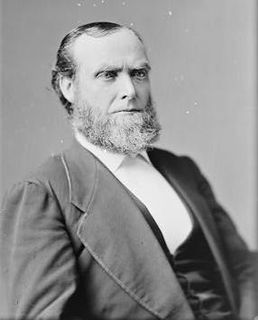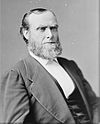The Radical Republicans were a faction of American politicians within the Republican Party of the United States from around 1854 until the end of Reconstruction in 1877. They called themselves "Radicals" with a sense of a complete permanent eradication of slavery and secessionism, without compromise. They were opposed during the War by the moderate Republicans, by the conservative Republicans, and by the pro-slavery and anti-Reconstruction Democratic Party as well as by conservatives in the South and liberals in the North during Reconstruction. Radicals led efforts after the war to establish civil rights for former slaves and fully implement emancipation. After weaker measures in 1866 resulted in violence against former slaves in the rebel states, Radicals pushed the Fourteenth Amendment and statutory protections through Congress. They disfavored allowing ex-Confederates officers to retake political power in the South, and emphasized equality, civil rights and voting rights for the "freedpeople", i.e. people who had been enslaved by state slavery laws within the United States.
The 1868 Democratic National Convention was held at Tammany Hall in New York City between July 4, and July 9, 1868. The slogan for the 1868 Democratic National Convention was, "This is a White Man's Country, Let White Men Rule". The convention was notable for the return of Democratic Party politicians from the southern states.

William Pitt Kellogg was an American lawyer and Republican Party politician who served as a United States Senator from 1868 to 1872 and from 1877 to 1883 and as the Governor of Louisiana from 1873 to 1877 during the Reconstruction Era.

The 1868 South Carolina gubernatorial election was held for three days from April 14 to April 16, 1868 to select the governor of the state of South Carolina. The election for statewide offices was held simultaneously with the vote on the South Carolina Constitution of 1868. Robert Kingston Scott won the election largely by the support of the newly franchised black voters and became the 74th governor of South Carolina.
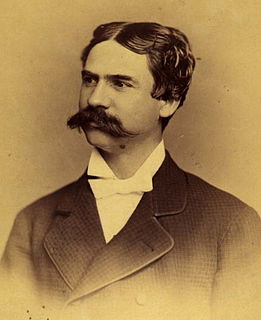
Henry Clay Warmoth was an American attorney, Civil War officer in the Union Army, who was elected governor and state representative of Louisiana. A Republican, he was 26 years old when elected as 23rd Governor of Louisiana, one of the youngest governors elected in United States history. He served during the early Reconstruction Era, from 1868 to 1872.

Rufus Smith Frost was a U.S. Representative from Massachusetts.
The US state of Illinois is a Democratic stronghold and one of the "big three" Democratic states alongside California and New York. It is considered one of the most Democratic states in the nation and following the 2018 elections, all six statewide elected offices are held by a Democrat.

The 1868 New York state election was held on November 3, 1868, to elect the Governor, the Lieutenant Governor, a Canal Commissioner, an Inspector of State Prisons and the Clerk of the Court of Appeals, as well as all members of the New York State Assembly.
Illinois is a Democratic stronghold in presidential elections and one of the three largest Democratic states in the nation alongside California and New York. It is one of the most Democratic states in the nation with all state executive offices and both state legislative branches held by Democrats. For most of its history, Illinois was widely considered to be a swing state, voting for the winner of all but two presidential elections in the 20th century. Political party strength in Illinois is highly dependent upon Cook County, and the state's reputation as a blue state rests upon the fact that the majority of its population and political power is concentrated in Chicago, Cook County, and the Chicago metropolitan area. Outside of Chicago, the suburban collar counties continue trending Democratic while downstate Illinois can be considered more conservative with some moderate regions.
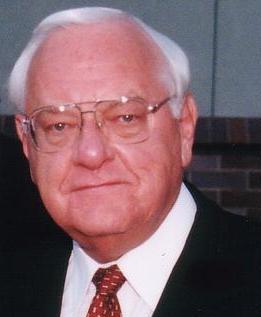
The 1998 Illinois gubernatorial election resulted in Republican Secretary of State George Ryan defeating Democratic Congressman Glenn Poshard.
War Democrats in American politics of the 1860s were members of the Democratic Party who supported the Union and rejected the policies of the Copperheads. The War Democrats demanded a more aggressive policy toward the Confederacy and supported the policies of Republican President Abraham Lincoln when the American Civil War broke out a few months after his win in the 1860 presidential election.

The Illinois gubernatorial election of 1860 was the twelfth election for this office. Republican governor William Henry Bissell died early in his term, and incumbern governor John Wood did not seek re-election. Former Democratic Congressman and former Clerk of the U.S. House James C. Allen was the Democratic nominee. A Number of third-party candidates ran as well; none received over one percent of the vote. At this time in Illinois history the Lieutenant Governor was elected on a separate ballot from the governor. This would remain the case until the adoption of the 1970 constitution.
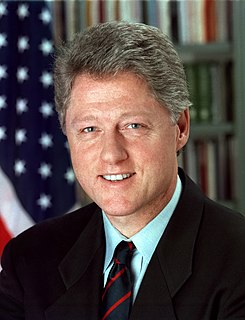
The 1992 United States presidential election in Illinois took place on November 3, 1992, as part of the 1992 United States presidential election. Voters chose twenty-two representatives, or electors to the Electoral College, who voted for president and vice president.
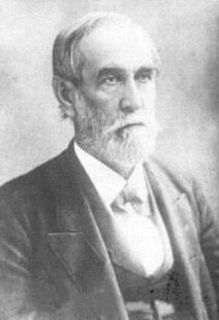
The Missouri gubernatorial election of 1868 was Missouri's 15th gubernatorial election. The election was held on November 3, 1868 and resulted in a victory for the Republican nominee, Congressman Joseph W. McClurg, over Democratic nominee former Congressman John S. Phelps.

The Illinois gubernatorial election of 1872 was the fifteenth election for this office. Republican nonimee, Former Governor Richard J. Oglesby defeated the Democratic and Liberal Republican nominee Gustavus Koerner. B. G. Wells represented Independent Democrats unwilling to ally with Liberal Republicans. Oglesby had agreed to run for the Governorship but to resign upon being elected so that Lt. Governor John Lourie Beveridge could assume the office. Oglesby was in turn appointed to the U.S. Senate.
Jesse Kilgore Dubois was an American politician from Illinois. The son of a prominent early Illinois citizen, Dubois was elected to the Illinois House of Representatives while he was attending Indiana College. Nicknamed Uncle Jesse, he served four two-year terms there. An early Republican, Dubois was named the party's first candidate for Auditor of Public Accounts. He was elected in 1856 and served two four-year terms. He was the father of Senator Fred Dubois.
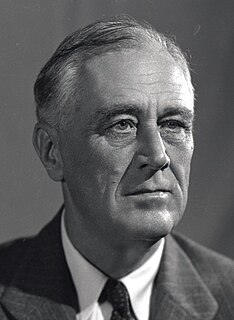
The 1944 United States presidential election in Illinois took place on November 7, 1944, as part of the 1944 United States presidential election. Illinois voters chose twenty-eight representatives, or electors, to the Electoral College, who voted for president and vice president.
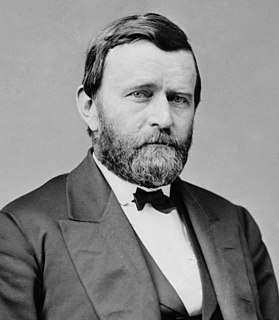
The 1868 United States presidential election in Illinois took place on November 3, 1868, as part of the 1868 United States presidential election. Voters chose 16 representatives, or electors to the Electoral College, who voted for president and vice president.


